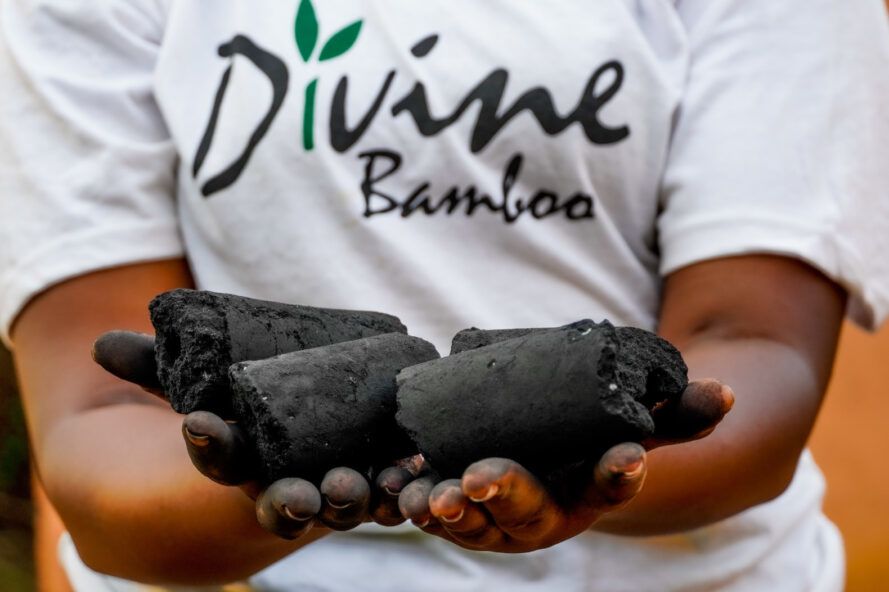
Using bamboo for reforestation and clean energy in Uganda
Each year, Uganda loses over 200,000 acres of forest to source wood for domestic cooking needs, such as firewood and charcoal. Unlike gas or electric stoves, biomass options are typically more affordable for the majority of the population. Yet, the use of firewood or charcoal poses health hazards and pollution risks to humans and the environment at large. In light of this, Divine Nabaweesi founded Divine Bamboo, an eco-friendly agroforestry and energy company. Her goal for the company was to stop deforestation in Uganda through bamboo forestry and use the plant as a base for clean biomass energy.
Continue reading below
Our Featured Videos

Contrary to popular belief, bamboo is actually a type of large grass and is the fastest-growing crop on earth. It is found throughout the tropics with several species native to East Africa. Bamboo grows to a mature clump within four to five years, after which it will consistently produce an annual harvest. Alongside its rapid growth, bamboo is very resilient and provides many benefits to the ecosystem it is in. One of the plant’s key strengths is rehabilitating degraded, deforested land. The bamboo’s roots, or rhizomes, have an interconnected system that binds topsoil and prevents erosion. In doing so, the rhizomatic structure sustains nutrients and water in the soil, assisting other crops to flourish alongside the bamboo clumps.
Related: Plants trees on old mines through the reforestation program

Since bamboo grows quickly and rejuvenates eroded land, reforestation is one of the primary efforts carried out by the Divine Bamboo team. They grow several species of bamboo in their nurseries and use this to revive clear-cut ecosystems. These nurseries also provide seedlings for farmers in the company’s agroforestry programs. The team trains communities and smallholder farmers to grow bamboo and empowers them with the skills to run their own bamboo plantations. Once the farmers’ bamboo plantations are established, the poles are cultivated and sold to Divine Bamboo to produce briquettes.

Because of its impressive ability to regrow rapidly, bamboo can be harvested regularly to produce biofuel. Divine Bamboo uses the plant to manufacture briquettes, which burn longer than firewood and charcoal. Additionally, unlike other forms of biomass, these bamboo briquettes do not produce smoke or soot. This is crucial as household air pollution is responsible for 3.5 million premature deaths globally. In fact, studies show that poor household air quality is linked to several health disorders. These include cardiovascular diseases, respiratory infections, cataracts and stillbirths. Since Divine Bamboo’s briquettes are up to 30% more affordable than traditional charcoal, communities are further encouraged to make sustainable choices for themselves and their environment.

Though the world’s energy needs are a primary threat to ecosystems and often instigate climate change, this does not need to be the case going forward. As shown with Divine Bamboo, sustainable bioenergy and forestry systems can immensely benefit the environment, communities and the economy.
